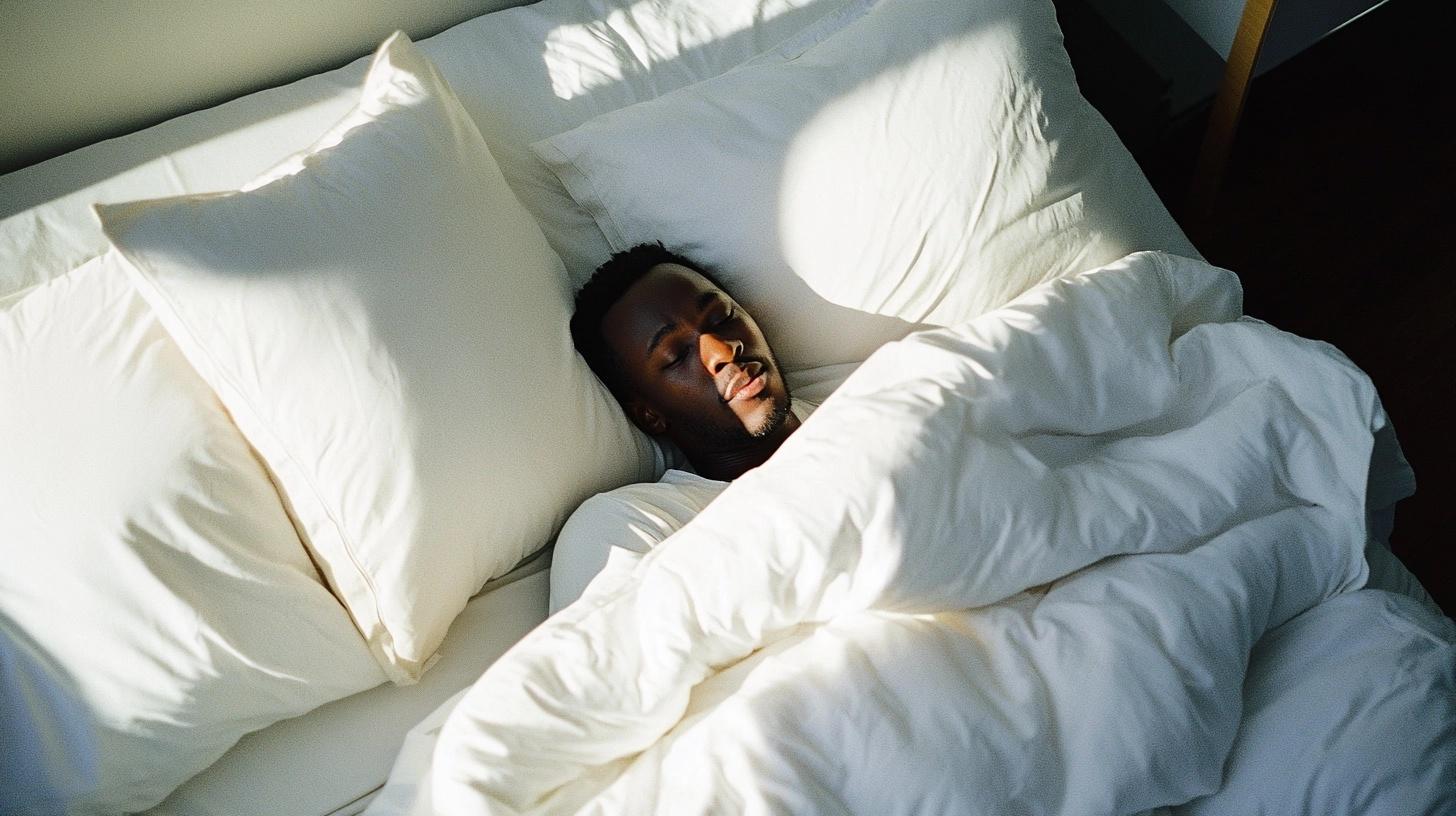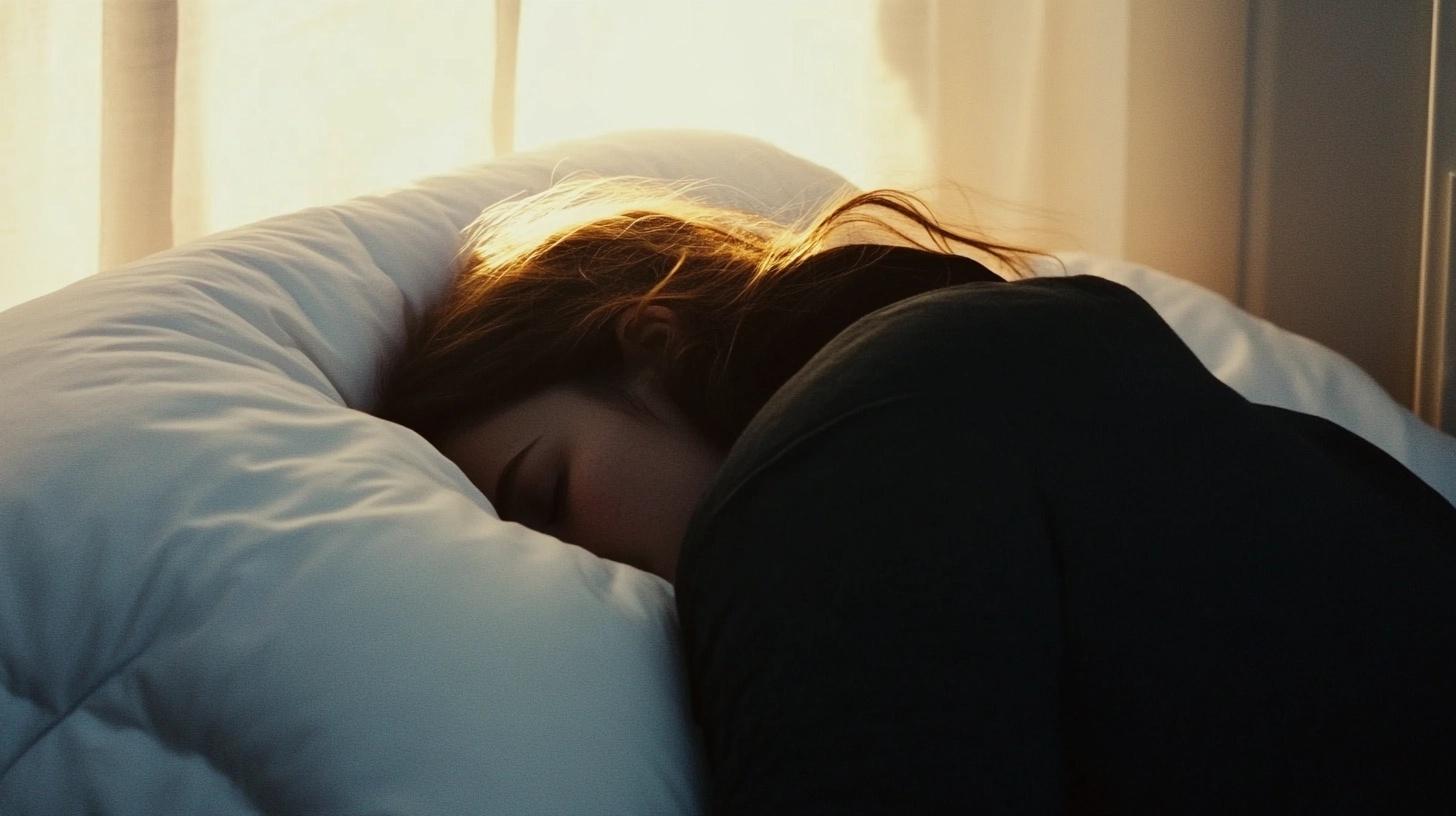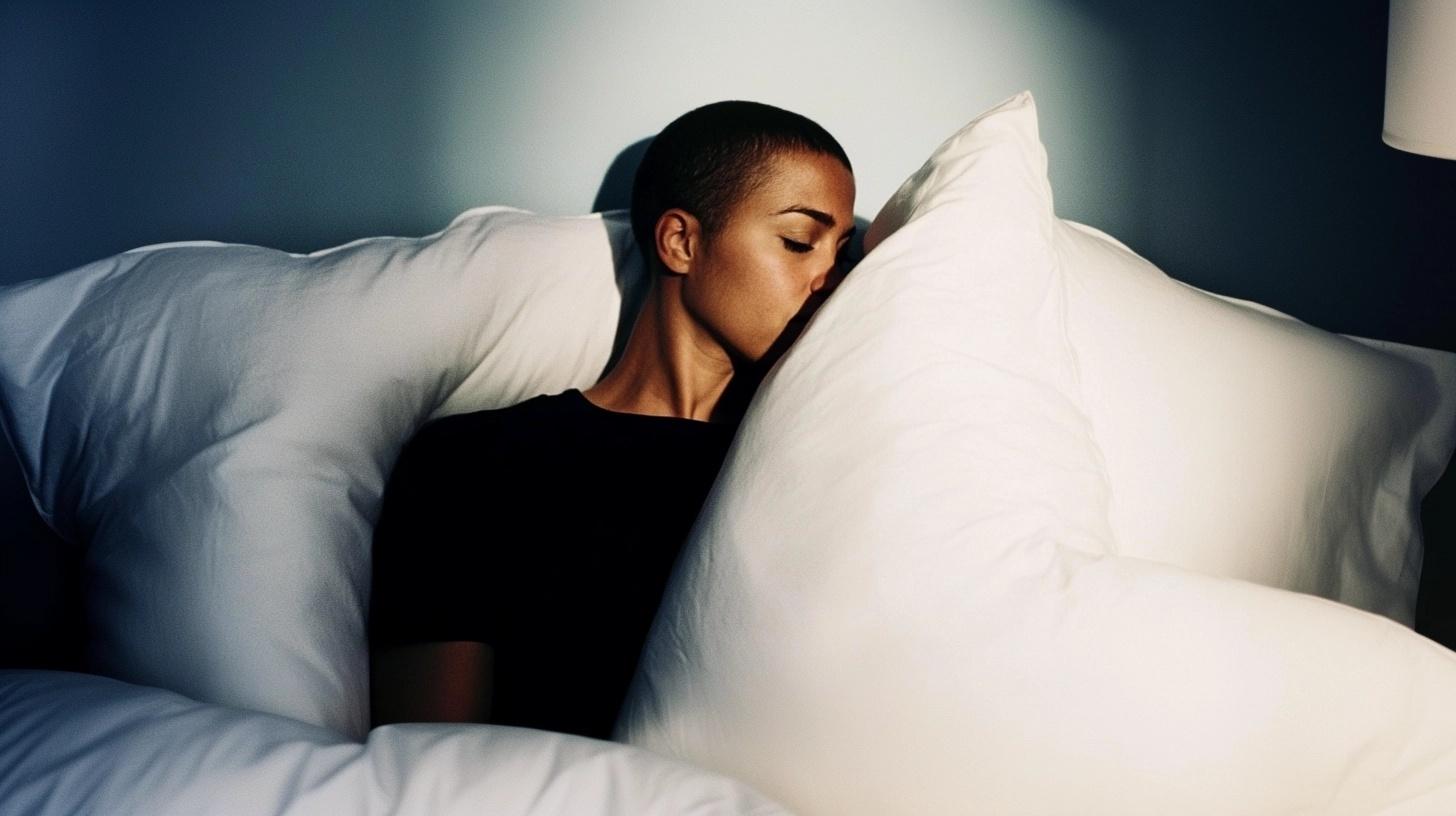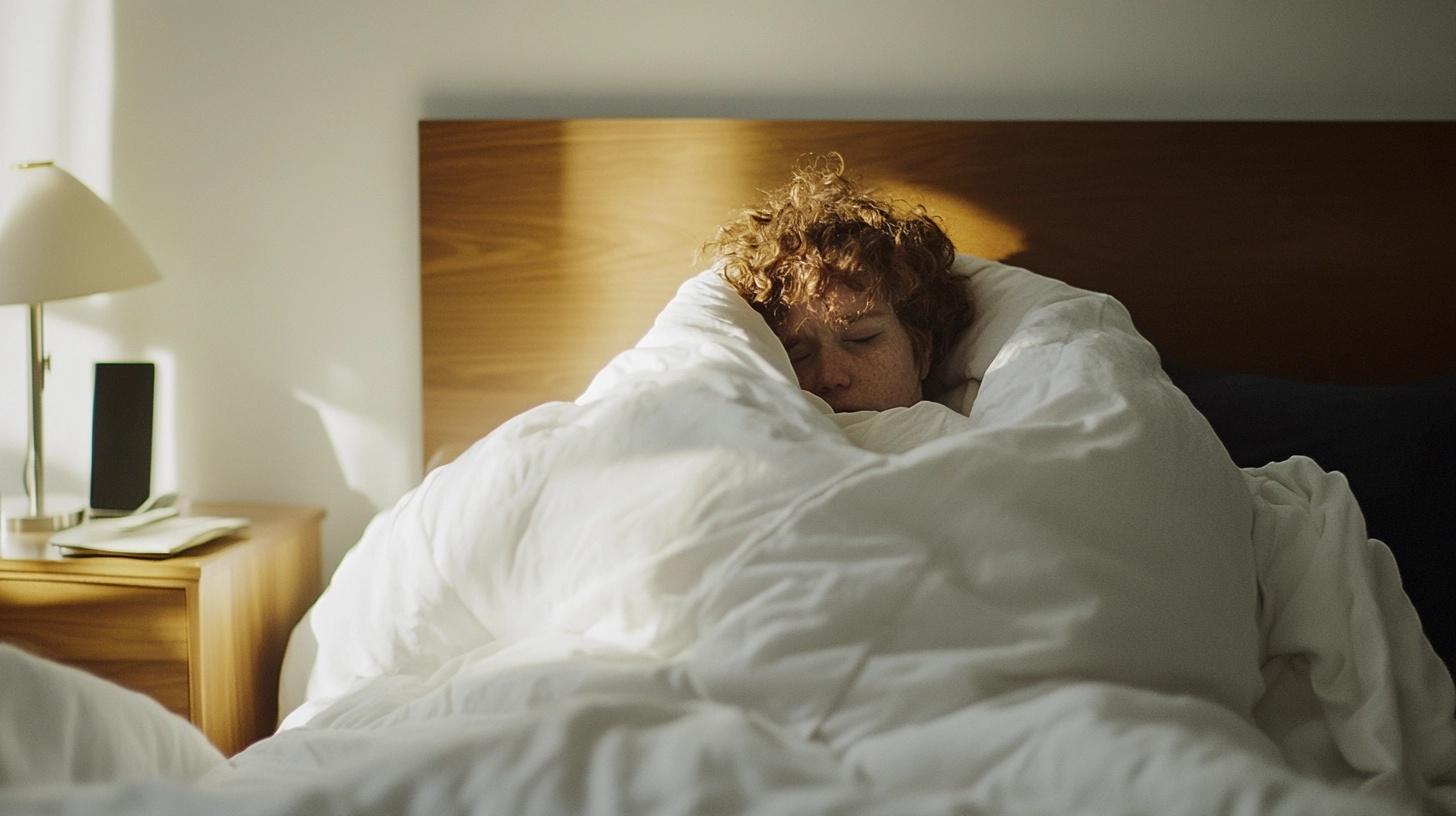Sleep & The Immune System
Published

How does sleep strengthen the immune system?
As science has proved time and time again, the importance of getting a good night’s sleep cannot be understated. Over recent decades, research into the world of sleep science has progressed enormously, revealing a close connection between sleep and physical health. Put simply, if you don’t get enough sleep, you will most likely get sick – but, why is this the case?
Well, when we sleep, we effectively give our body time to carry out any major housekeeping or repairs it needs across all of our body’s systems. From removing waste products in our cells to creating new collagen in our skin, sleep helps keep our body fit and ready to take on another day – both internally and externally. However, recent evidence has highlighted another area where getting a good night’s kip can benefit us greatly: our immune system.
In this article, we’ll cover:
- Why the immune system is important
- The impact and benefits of sleep on immunity
- How does a lack of sleep make you sick?
- The impact of the immune system on sleep
The immune system and why it’s important
The immune system is the defense network your body uses to prevent or limit infections within your body. There are a variety of components that offer important roles whenever your body needs to initiate an immune response. One of these key components is our white blood cells, otherwise known as leukocytes.
Recognizing a foreign pathogen within our body, these leukocytes release cytokines – proteins that act as messengers within the immune system. These will then inform other white blood cells to attack the pathogen, removing it in either an immediate (innate) or learned (adaptive) manner. As a result, our body will then stay protected from potential harm – albeit during a process that will often make us feel worse before we feel better.
The impact and benefits of sleep on immunity
Maintaining an effective immune response is all about balance. Say, for instance, you accidentally cut your finger while making dinner. Your immune response will kick in by releasing a variety of immune cells to the damaged site, creating redness, swelling and inflammation to counteract the threat. Therefore, the more balanced your immune response is, the more effective it will be in defending your body – and this is where having a good night’s sleep can make a big difference.
Sleep provides essential support to the immune system, helping maintain its healthy functioning by providing a well-balanced response to external factors like pathogens, vaccines and allergies. It’s for this reason why, if you don’t get enough sleep, you tend to get sick more often and take longer to recover.
Numerous studies have also demonstrated the special connection between sleep and the immune system and the variety of benefits it can offer to your overall health and wellbeing. So, let’s run through a few examples of these below:
Sleep improves adaptive immunity
As the more specialized arm of your immune system, adaptive immunity refers to your body’s ability to identify, remove and remember invading pathogens. This, in turn, creates what’s known as ‘immunological memory’ and is the reason why you don’t get viruses like chickenpox more than once.
On the flip side, innate immunity is your body’s first line of defense and functions as more of a messenger system, sending out signals to tag invading pathogens as a threat before triggering their removal. So, why is this important? Well, researchers have found that, during sleep, certain components involved in both of these types of immunity are revved up.
Cytokine production, for example – an important component of the innate immune response – is driven by how much sleep we get, and our own internal circadian rhythm. Meanwhile, because of this increased immunological component activity, this helps reinforce our immunological memory – an important component of our adaptive immune response. This then strengthens the immune system’s ability to react to any pathogens it has dealt with previously, keeping us protected against future infections.
Sleep makes vaccines more effective
While on the topic of the immune system’s response to foreign invaders, further studies have shown a strong link between sleep and the effectiveness of vaccines. Vaccines work by introducing a weakened or deactivated antigen into the body, intentionally stimulating an immune response and forcing the immune system to recognize that specific antigen.
Various studies have recently discovered that people who are sleep deprived – often suffering from conditions like insomnia or sleep apnea – tend to have a weaker immune response to vaccinations, leaving them more likely to require additional doses to stay protected.
What’s more, individuals who fail to get at least seven hours of sleep per night have also been shown to have a weaker overall immunological memory, leaving them unprotected against specific viruses despite being vaccinated against them.
Sleep eases allergic reactions
Allergic reactions are another form of response triggered by your immune system and there is now growing evidence to suggest that sleep can impact how severely people react to specific allergens.
During a study back in 2013, researchers suggested that disruptions to the body’s circadian rhythm could impact both the likelihood and severity of allergic reactions. This means that, if you were allergic to peanuts, for example, failing to get enough sleep could not only significantly increase your risk of an attack, but could also have potentially serious or even fatal consequences.
How does a lack of sleep make you sick?
As we may have gathered by now, not getting enough sleep can have a pretty drastic effect on the immune system. But, how does this go on to impact your overall likelihood of getting sick over both the short and long term?
Over the short term, people who get less than six or seven hours of sleep per night have been shown to have a higher risk of infection from the common cold or the flu. Left unaddressed, the impact this has can then lead to multiple long-term health problems and chronic diseases, largely due to the immune system’s reduced ability to regulate inflammation while we sleep.
During a healthy night of sleep, the inflammatory processes that take place because of our immune system will recede to a normal level before we wake up. However, in instances where we don’t get enough sleep, the system may leave a low level of inflammation that persists throughout the day. Over time, this low level of inflammation will gradually increase, not only leading to increased feelings of pain but also elevating the risk of various harmful diseases, such as diabetes, heart disease and even cancer.
Depression has also been associated with a lack of sleep; higher rates of insomniacs have been shown to suffer from the condition than individuals who maintain a healthy sleeping routine. This, therefore, highlights the importance of sleep from both a physical and mental health perspective.
The impact of the immune system on sleep
While we may have focused up to now on how sleep impacts the immune system, the actions that our immune response triggers can also affect how we sleep.
Think back to a time you were ill, for example, and ask yourself; how did you feel?
The chances are you’ll have been pretty low on energy and, more often than not, will have spent a lot longer in bed and sleeping during the day than you normally would. Well, this is all thanks to your immune system. When we become sick, our immune system will trigger various responses to help make us feel better, including when we sleep. One key example of this comes through how much more time we spend in deep sleep when we’re ill which, studies have shown, helps enable the immune system to utilize more of our body’s energy to fuel its various processes.
One of these processes is the onset of fever – a higher body temperature designed to create a more hostile environment for pathogens. The theory goes that, because of the increased amount of deep sleep we get when we’re ill, we effectively render our body unable to shiver (due to the onset of muscle atonia) and, therefore, avoid wasting any unnecessary energy.
Thanks to this process, the preserved energy can then be better utilized by our immune system while we sleep, enabling it to, ultimately, make us feel better when we wake up.
Conclusion
It’s safe to say that sleep and immunity have a pretty tight-knit relationship. Therefore, by prioritizing sleep and implementing habits (like tracking your sleep) to keep your routine as regular as possible, you’ll indirectly support your immune system at the same time as well, keeping you feeling both healthier and happier. Win-win!
For further hints and tips on how to implement a healthy sleeping pattern, check out some of our serious sleep hacks here. Or, if you’re a student, here’s what you’ll need to do.






